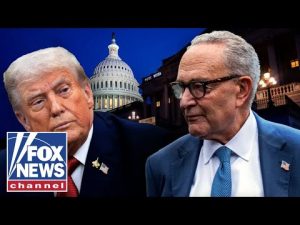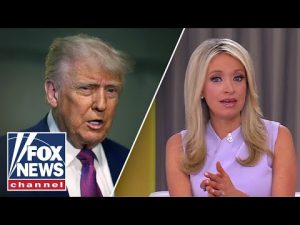In a time when political chatter fills the airwaves and social media feeds, the recent elections have drawn a spotlight on the Democrat-Republican rivalry like never before. The election results in various states were mixed, but many pundits, including a prominent Hoover Institute fellow, stressed that the Republican Party must focus on the economy if they wish to gain ground in time for next year’s midterms. It’s no secret that voters are concerned about their wallets, and the Republicans need to talk about it—repeatedly and emphatically.
This start of a new political season, marked by elections in cities like New York, has everyone buzzing. With Democrats claiming victory where they were expected to, some feel Republicans have missed their chance to strike a chord with voters. The guidance is clear: for Republicans to rise from the ashes, they must incessantly hammer home the state of the economy. After all, high inflation rates have made a dent in household budgets, and lower prices at the pump would send a welcome signal to the average American.
Opponents of the Democratic Party find themselves baffled by the tactics employed. They contend that instead of presenting a solid agenda, the Democrats lean on chaos, utilizing negative ads and divisive rhetoric to garner support. It seems that while the Republicans are playing a strategic game of chess, the Democrats are playing checkers in the middle of a crowded park—you know, the kind where no one has a clue who the king is. The commentary suggests that the natural chaos created by the Democrats actually allows their candidates to evade scrutiny.
Long-term economic indicators point toward the need for strategic Republican messaging. The ups and downs of the inflation rate and fluctuating gas prices could be pivotal talking points. The previous administration campaigned on promises of stabilization and growth, and supporters argue that these points should not fade from discussion. They believe that while the Democrats may be good at creating headlines, the Republicans should capitalize on their economic results—like low unemployment rates and higher GDP—rather than getting bogged down in the drama of political theater.
As leaders begin to map out their strategies for the next election cycle, the need for a unified message resonates more than ever. Voters are craving details, like explanations for economic changes and solutions to everyday concerns, rather than the theatrical flare of shutdowns and name-calling. It is becoming abundantly clear that if the Republicans can rope in their base and not lose sight of the issues important to the voters, they might just revive their fortunes come November.
Nevertheless, within this whirlwind of tactics and strategies, one thing remains certain—the currency of political discourse will always rely on the economic climate that surrounds us. Voters are no longer responding to rhetoric alone; they want results and tangible improvements in their lives. So, as the Republican Party gears up for the midterms, focusing on the economy could mean the difference between celebrating victories or lamenting lost opportunities. After all, it seems to be a promise worth campaigning for, especially when your fridge is looking a little bare.







